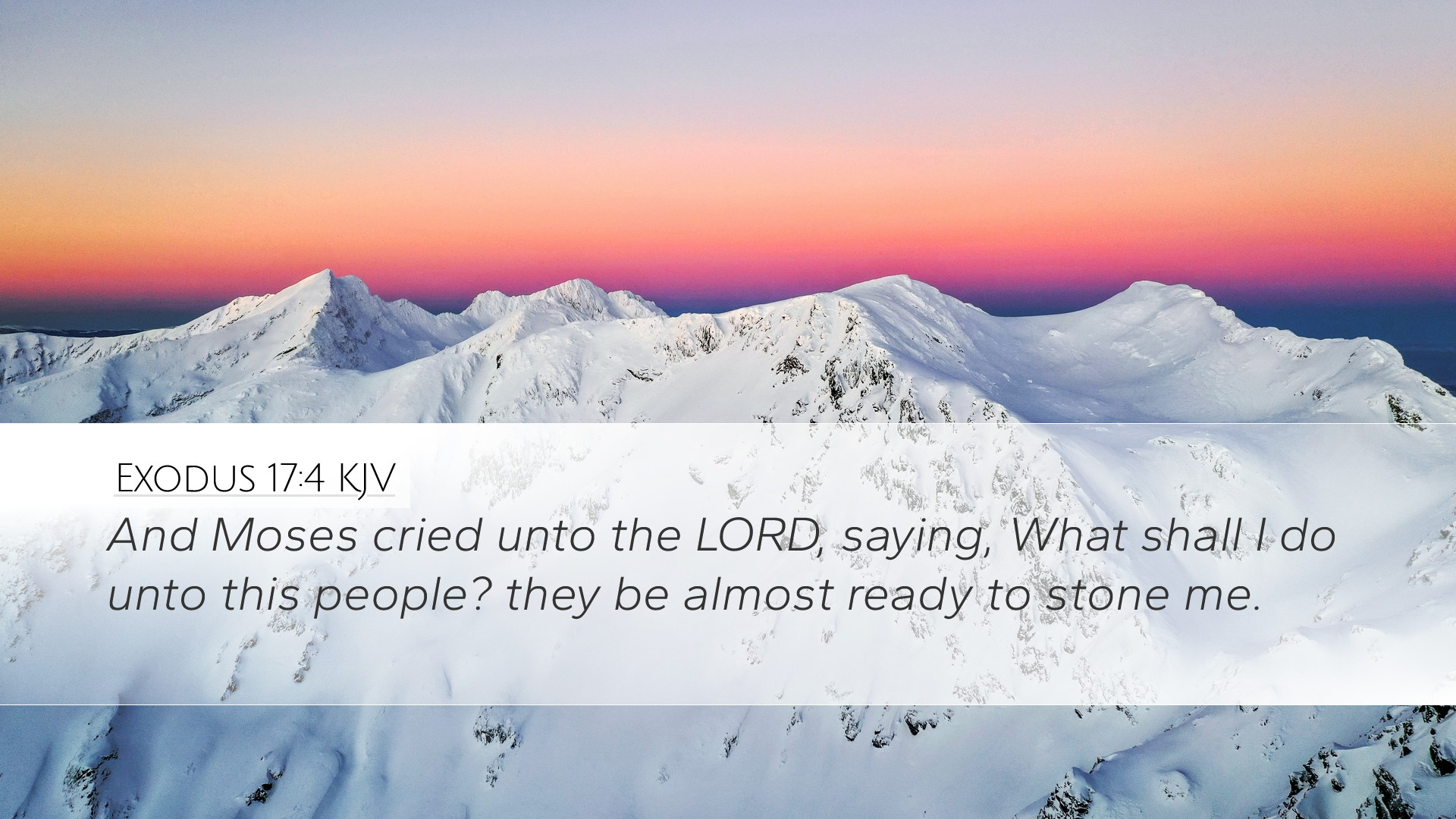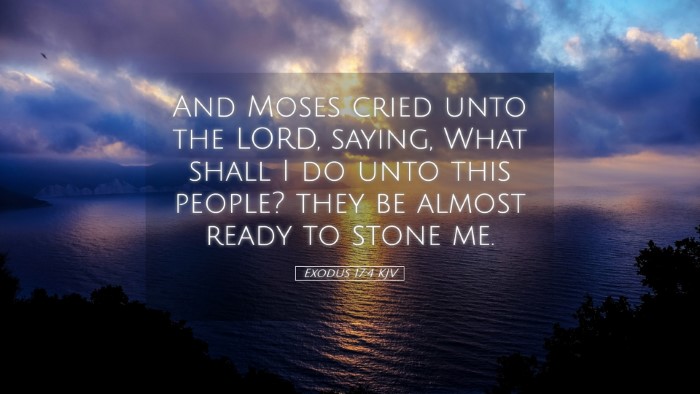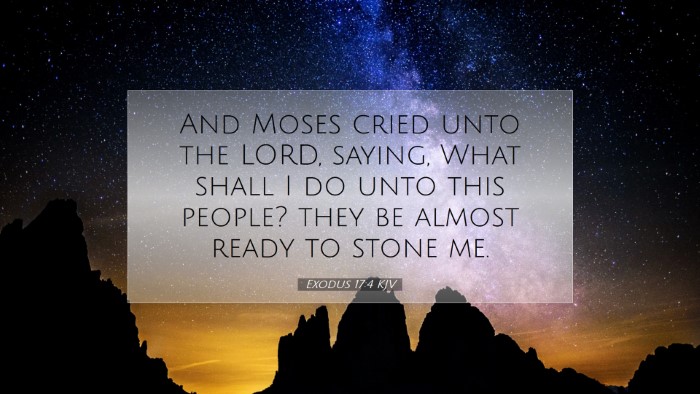Commentary on Exodus 17:4
Verse: Exodus 17:4 - "So Moses cried out to the Lord, 'What shall I do with this people? They are almost ready to stone me!'"
Contextual Background
This verse occurs during the Israelites' wanderings in the desert, shortly after their exodus from Egypt. The people, weary and thirsty, express their displeasure by questioning Moses, who had been appointed as their leader. The context highlights the persistent theme of human doubt and discontent, even amidst miraculous deliverance.
Insights from Commentaries
1. Matthew Henry's Commentary
Matthew Henry observes that this passage illustrates the trials that Moses faced as a leader. He emphasizes that the people's lack of faith led to despair and desperation. They had witnessed God's power in Egypt, yet found themselves doubting His provision in the desert.
Henry draws attention to Moses' cry to God, emphasizing the weight of leadership and the loneliness it can impose. The leader’s despair reflects the violent reactions of a restless community eager to place blame during times of hardship.
2. Albert Barnes' Notes on the Bible
Albert Barnes provides further insights into the dynamics between leadership and public sentiment. He notes that Moses’ question, "What shall I do with this people?" reflects his profound frustration and sense of helplessness in guiding a rebellious group. Barnes discusses the gravity of the threat facing Moses, indicating that the people's desire to stone him was a serious expression of their dissatisfaction and anger.
Barnes highlights the importance of seeking God’s direction in times of crisis, demonstrating that Moses, despite feeling overwhelmed, turned to the Lord for guidance. This act reaffirms the necessity of reliance on divine wisdom amid human trials.
3. Adam Clarke’s Commentary
Adam Clarke delves into the psychological and spiritual implications of Moses' situation. He points out that Moses’ leadership was not only a physical burden but also a spiritual one, as he bore the consequences of a faithless people. Clarke emphasizes the idea that crises reveal the true nature of one's faith, both for leaders and followers.
Clarke further comments on the nature of the complaint from the people, suggesting that their murmuring stemmed from a lack of understanding of God's ongoing provision. He encourages readers to understand the difficulty of Moses' role and the importance of maintaining faith in God’s plans during challenging times.
Theological Themes
This verse captures several key theological themes relevant for pastors, students, theologians, and scholars:
- Leadership Challenges: A profound lesson on the burdens of leadership and the importance of seeking divine guidance.
- Human Despair: The passage illustrates the struggle of faith amidst physical and spiritual hunger, reflecting human tendencies to despair.
- God's Provision: God’s faithfulness is paramount, urging believers to trust in His unfailing support, even during dire circumstances.
- Communal Response to Crisis: The people's murmuring serves as a reminder of how adversity can lead to discontent and strife within a community.
Practical Applications
For Leaders: The passage serves as a reminder to leaders that their call is often accompanied by trials. Leaders must remain grounded in prayer and seek divine wisdom when faced with criticism and despair.
For Believers: The narrative encourages believers to remain steadfast in their faith and to be reminded of God’s ongoing provision, fostering a spirit of gratitude rather than complaint.
For Community: It highlights the necessity of a supportive community ethos, urging congregants to uplift one another rather than succumb to despair during trials.
Conclusion
Exodus 17:4 presents a powerful moment in Israel's narrative, reflecting deep spiritual truths and practical lessons for leadership and faith. Drawing from the insights of notable commentators, pastors and theologians are encouraged to delve deeper into their understanding of God’s faithfulness, especially in the midst of communal strife and personal challenges.


